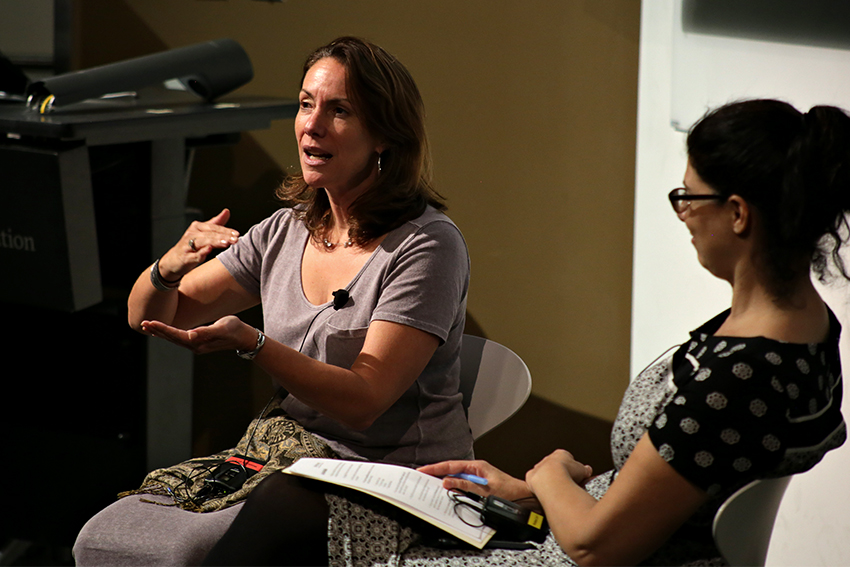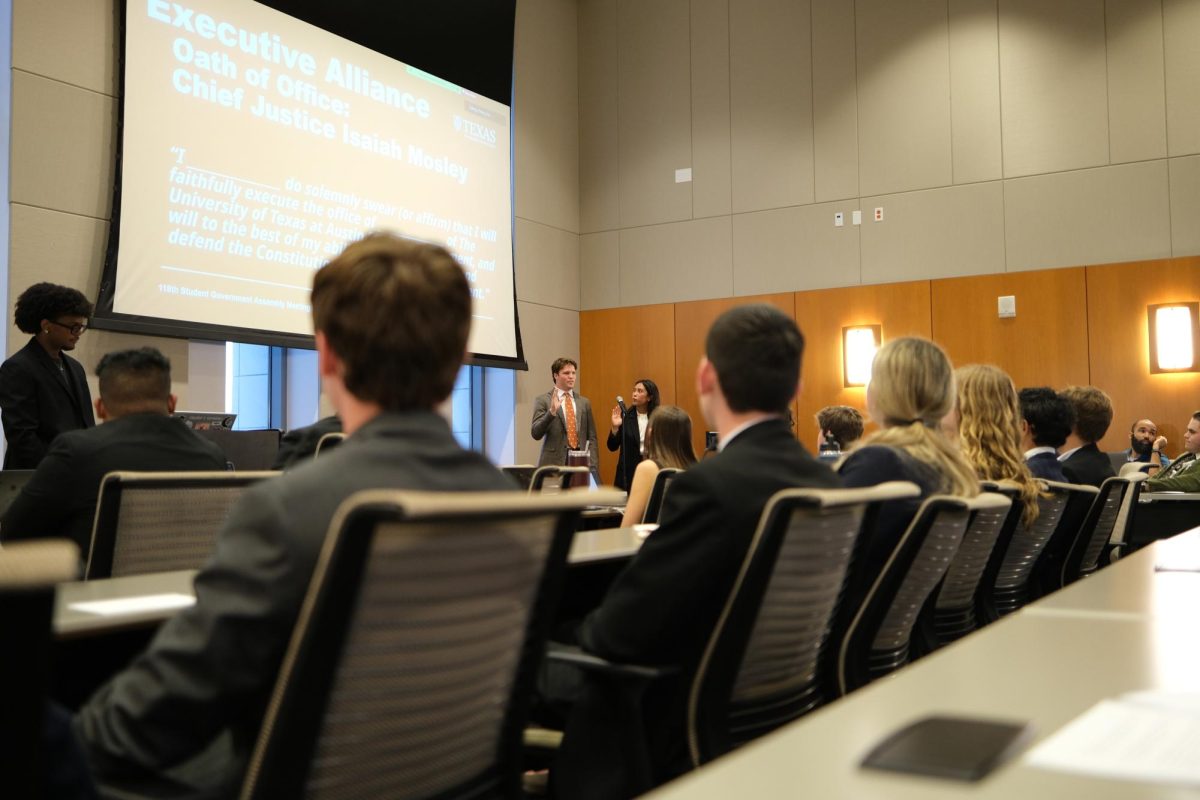Radio-television-film associate professor Caroline Frick said her many different jobs eventually led her to becoming a film archivist, a career she did not even know existed.
Frick spoke to students about her career in media history and preservation Monday at Moody’s Media Industry Conversations. In the past, Frick worked in programming at AMC, film preservation at Warner Bros., the National Archives in Washington, D.C., and the Library of Congress.
“It’s a bit of a clunky term to say you’re a film or a media archivist,” Frick said. “I didn’t even know there was such a thing. When I was 13, I started watching old movies. I asked my mom if there was something like a librarian for old movies. She’s the one who told me about the National Archives.”
Radio-television-film graduate student Rusty Hatchell said he appreciated Frick educating students about different career paths.
“Not everything in RTF is just trying to be a writer or a director,” Hatchell said. “There are other jobs.
While working for the Library of Congress, Frick traveled across the United States educating communities about film history.
“I literally was going around the country creating film festivals,” Frick said. “The goal was to do this in all 50 states. We wanted to preserve old movies through education.”
Radio-television-film associate professor Alisa Perren, who moderates Media Industry Conversations, said she enjoyed hearing about Frick’s unique career path.
“I just love her anecdotes,” Perren said. “I loved hearing the different ways she used her degrees throughout her career.
In 2002 while working on receiving her Ph.D. from UT, Frick founded Texas Archive of the Moving Image, a non-profit organization meant to preserve and educate about Texas’ film history. TAMI digitizes thousands of films to permit access to the public.
Frick said TAMI makes sure to not just focus on the well-known films of Texas filmmakers such as Robert Rodriguez and Tobe Hooper, but also on commercials and training videos to capture the culture of Texas from a particular time.
Frick also said archivists try to preserve everything they can so people in the future can know what life was like in the past.
“There is an inability for archivists to ever know what will be important in the future,” Frick said. “So we try to save everything. Somehow the most mundane images can have the most information. You never know what people will find interesting.”



















